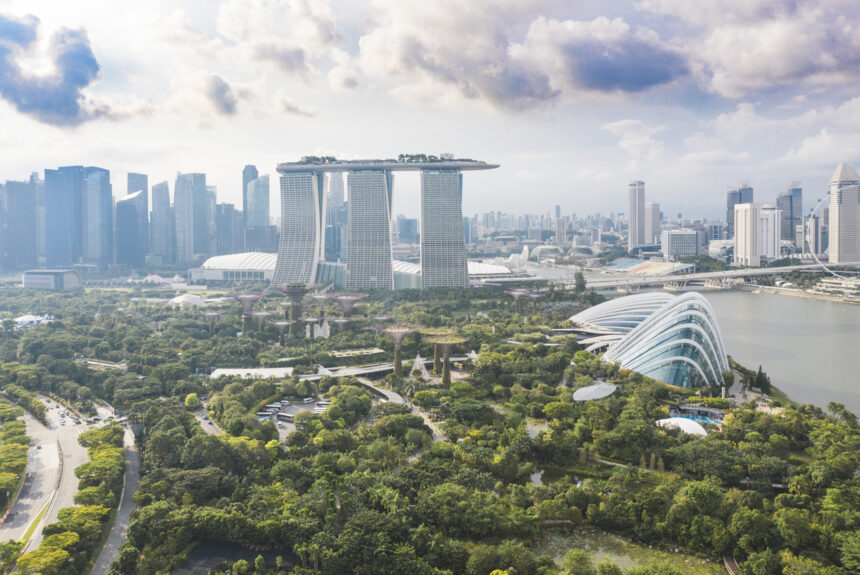COP 28 is underway in Dubai and the conference has brought more than 100,000 people from around the world to discuss climate solutions. While there have been encouraging commitments to increase global nuclear energy capacity and strengthen voluntary carbon markets, many delegates and activists have regrettably proposed costly, ineffective plans to phase out fossil fuels faster than practically possible, which would trap people in poverty and create geopolitical havoc beyond what we’ve ever seen.
>>>READ: COP28: Economic Freedom is the Solution
As the CEO of a solar company, I am a fan of renewables. But as a conservative, I am not in favor of top-down energy shifts with government mandates and subsidies, especially before the market is ready to adapt. Climate change is a serious challenge that the world faces, but we cannot let the solutions be worse than the problem that we’re looking to solve. Reducing emissions is a priority, but it should not be done at the expense of restricting energy access and keeping poor people poor.
Those who propose to do so are deeply unserious and have not considered how picking winners and losers can hamstring energy access in the developing world and hurt economic growth. Rather than restricting freedom by forcing consumers to incorporate certain energy technologies, let’s start bringing more economic freedom into the discussion and find ways to expand energy access worldwide.
In C3 Solutions’ newly released Free Economies are Clean Economies report, we examine the relationship between economic freedom and environmental performance to find that free economies are nearly twice as clean as their unfree counterparts. The results of this report are critical as the world looks to reduce emissions, lower global poverty, and bolster energy security.
One of the primary reasons that economic freedom yields better environmental outcomes is because economically free countries are wealthier. Higher levels of income are imperative to better environmental outcomes for several reasons. After higher priorities like food, water and shelter are met, greater wealth provides more resources to dedicate to environmental protection. Richer countries have more funds to invest in public services such as sanitation, garbage collection, and pollution abatement. Through policies, accumulation of knowledge and technological progress, public and private sectors reduce unwanted environmental byproducts.
>>>READ: Energy Accessibility and Affordability Drives Human, Climate Progress
Greater wealth leads to cleaner energy use, which provides several human benefits including fewer pollution-caused deaths. However, poverty, which is often perpetuated by a lack of electricity access, forces humans to turn to dirtier fuels such as charcoal, biomass, and dung to meet their energy needs. The use of these energy sources increases the levels of indoor and ambient air pollution, which is one of the leading causes of premature deaths worldwide.
This is a serious problem, but one that can be solved through technological progress and innovation.
One example of this is Chris Wright, the CEO of Liberty Energy and the author of this year’s Free Economies foreword. As a leader of a publicly-traded oil and gas company, Wright has tasked his company to find solutions to address energy poverty in the developing world. One initiative that Wright is leading is the Bettering Human Lives Foundation which will support entrepreneurs to expedite the availability of clean cooking fuel (propane) to the over 2 billion people who lack it today. With access to cleaner energy, people will be able to transition away from the use of biomass and dung, which will reduce air pollution and save countless lives.
While many activists would say that we need to phase out fossil fuels, Wright is turning to fossil fuels to solve the problem of air pollution. With cleaner cooking technology families can spend less time gathering fuel and more time going to school, starting a business, and growing their net worth. From there, societies at large can begin to invest in emerging technologies, cleaner transportation, and resilient infrastructure. All of this is made possible by expanding access to abundant energy; it’s made possible by economic freedom.
Economic freedom offers a pathway where we don’t have to choose between prosperity and the environment. We can have both. As Chris Wright and so many entrepreneurs like him are demonstrating, the best way to reduce emissions and address systemic poverty is by unleashing innovation to the world. Solving energy poverty, air pollution and climate change will require more innovation and human ingenuity. When countries pursue policies rooted in economic freedom, people will be better equipped to solve those problems. It’s time for global leaders to recognize that.
The views and opinions expressed are those of the author’s and do not necessarily reflect the official policy or position of C3.
